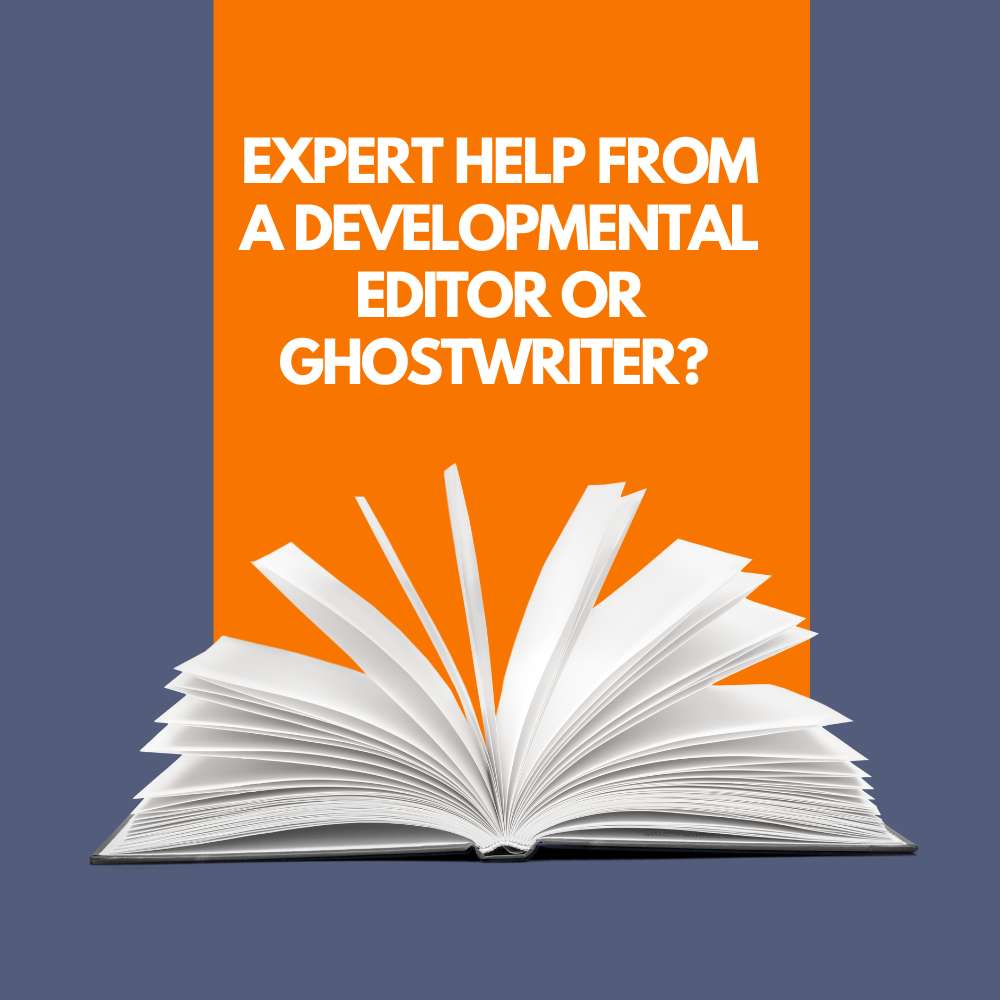Expert Help from a Developmental Editor or Ghostwriter?
Did you know that 42% of writers struggle with writer’s block on their first draft? Struggling to find the right words can be paralyzing, interrupting your creative flow and making even the most exciting ideas feel like a distant memory. Whether you’re tackling a novel, an article, or any other form of writing, getting unstuck is crucial for bringing your vision to life.
In this comprehensive guide, we’ll explore two powerful tools in your writing arsenal: developmental editors and ghostwriters. Discover when each is the right choice, their unique contributions, and how they can help you overcome writer’s block once and for all.

Table of Contents
What Exactly Is a Developmental Editor?
A developmental editor is more than just someone who reads your work aloud; it’s an expert who helps you refine both the structure and substance of your writing. They focus on helping you clarify your message, improve clarity, enhance flow, and ensure that your content resonates with its intended audience.
Key Responsibilities of a Developmental Editor
- Clarifying Your Message: If your writing feels vague or unclear, a developmental editor can help pinpoint the core idea and articulate it effectively.
- Improving Clarity: They’ll point out parts where your writing could be more precise, avoiding ambiguity that might confuse readers.
- Enhancing Flow: A smooth narrative or essay flows better when each paragraph transitions naturally to the next. A developmental editor will ensure coherence and readability.
- Fostering Creativity: While guiding you toward professionalism, they respect your creative voice, encouraging originality without stifling it.
When Should You Consider a Developmental Editor?
- If your writing feels disjointed or unclear.
- If your target audience isn’t fully on board with your message.
- If your project lacks coherence and needs a better structure.
What Is a Ghostwriter?
A ghostwriter is an expert in crafting compelling content, often taking full creative control over your project. They’re ideal for authors who want to focus on other aspects of the writing process but need assistance creating a polished, professional narrative or promotional piece.
Key Responsibilities of a Ghostwriter
- Drafting Content: If you’re stuck finding words, a ghostwriter can provide a draft tailored to your vision.
- Ensuring Professionalism: They’ll create content that conveys professionalism and authority in their field.
- Editing and Copywriting: They handle the final polish, ensuring grammar, style, tone, and formatting are flawless.
When Should You Consider a Ghostwriter?
- If you’re an inexperienced writer who needs help starting or completing your project.
- If your writing lacks a distinct voice or doesn’t meet industry standards.
- If you’ve hit a creative wall but haven’t yet decided to seek a developmental editor for structural issues.
Choosing the Right Writing Partner
Deciding between a developmental editor and a ghostwriter depends on your specific needs. Both have unique strengths:
Developmental Editor vs. Ghostwriter: A Comparison
| Aspect | Developmental Editor | Ghostwriter |
|---|---|---|
| Role | Refines structure and substance | Writes entire content |
| Best For | Struggling with ideas or structure | Need help drafting from scratch |
| Price | Mid to high | High |
Both are valuable, so choose based on what you need most.
Why Work With a Developmental Editor or Ghostwriter?
- Overcoming Writer’s Block: Both experts can stimulate your creative process.
- Improved Professionalism: Their work elevates your writing to a higher level.
- Time-Saving: They handle the writing and editing, allowing you to focus on other aspects of your project.
FAQs
What is developmental editing?
Developmental editing is an in-depth review of a piece of writing that focuses on improving the content and structure of a manuscript. It involves assessing the overall structure, content, and flow of your manuscript. A developmental editor provides feedback on the plot, character development, pacing, and theme.
What does a developmental editor do?
A developmental editor looks at the big picture. They help you craft believable, relatable characters with clear motivations and arcs. They can identify plot holes, inconsistencies, or areas where the story might benefit from restructuring. The editor will provide strategies to add complexity and authenticity to characters and help identify sections that drag and those that rush. They help to clarify and strengthen themes and messages, ensuring your book communicates its intended message effectively.
Why is developmental editing important?
Developmental editing is important because it provides an outsider’s perspective to help identify any gaps in an author’s writing. A developmental editor can provide writers with honest opinions about how the work looks and offer guidance on how to improve it. It helps ensure your story has a strong foundation.
How does developmental editing improve the marketability of a book?
Developmental editing refines the story’s structure, enhances emotional depth, and improves pacing, making the book more engaging and marketable. Professionally edited manuscripts are far more likely to grab the attention of agents, publishers, or readers. Books that are well-edited are more likely to generate positive reviews, build a loyal audience, and stand out in the crowded literary market.
When should I hire a developmental editor?
It’s worthwhile to have a freelance editor look at the whole thing and provide an objective assessment before seeking publication. Developmental editing is important for fiction since it helps ensure your story has a strong foundation.
What are the benefits of developmental editing?
The benefits of developmental editing include strengthening character development, improving pacing, sharpening themes and messages, and offering objective feedback. It can also boost confidence, provide learning opportunities, and strengthen marketability. It transforms your manuscript from a rough draft into a compelling, polished story ready for publication.
How does developmental editing save time and effort?
Instead of multiple rounds of revisions on your own, you receive targeted feedback that accelerates the editing process. With expert guidance, you’ll produce a refined manuscript more quickly, freeing you to start your next project sooner.
What kind of feedback can I expect from a developmental editor?
Developmental editors focus on improving the content and structure of a novel, nonfiction book, short story, or other types of writing. They’ll help you identify the possible theoretical frameworks you might choose to emphasize when you revise. Some components developmental editors address include character development, dialogue, tone or style, sentence phrasing, pacing, setting, and potential plot holes.
Will a developmental editor rewrite my book for me?
While developmental editing inevitably leads to a great deal of rewriting, it’s up to you to implement their suggestions. The developmental editor will set you up for success.
How can developmental editing improve my skills as a writer?
Working with a developmental editor is also a learning experience. You gain insights into storytelling techniques and industry standards that enhance your skills as a writer. The feedback and suggestions you receive can serve as a masterclass in writing, offering you tools and techniques that you can apply in future projects.
Final Thoughts
Struggling with your first draft? Don’t panic! A developmental editor or ghostwriter can be your lifeline. Whether you need help starting or refining your work, they are here to bring your vision to life. With the right support, even the most daunting projects become manageable and rewarding experiences.
So, it’s time to take charge of your writing journey. Seek expert help today—after all, a good editor is worth every penny!
Discover marketing services, interviews & publishing tools at SharingStories.




